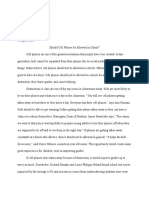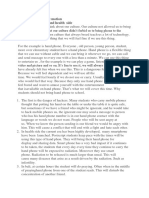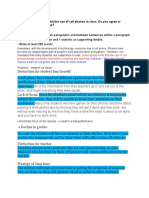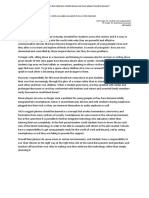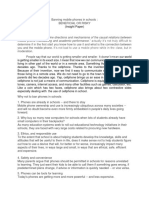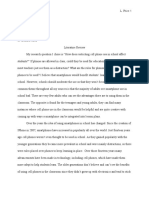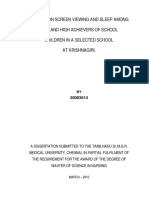Another school has banned mobile phones, but research shows bans don't stop bullying
or improve student grades
Summary By:Regina Woodley
When it comes to assisting young people in dealing with technology, schools have
undoubtedly been put on the line. According to anecdotal evidence, phone bans are meant to
ensure that students behave better and concentrate more during class. However, evidence
demonstrates that outright prohibition does not fix these issues. Students need to be taught how
to handle these issues instead.
Thorough peer-reviewed data, as evaluated by Joanne Orlando of The Conversation,
demonstrates that prohibiting cell phones in the classroom has no effect on kids' academic
achievement. Long-term, it has no negative effects on performance in the classroom or positive
effects. The grades high school pupils received before and after a year-long mobile phone ban
were compared in a 2020 Swedish study, and no differences were observed.
Beyond simply prohibiting them at the school gate, Orlanda emphasized that there are
three larger concerns to consider. The first was titled "Living in a Distracted World," in which it
was explained that we needed to help children learn how to focus and live in a society that was
heavily reliant on technology. The second is "New Risk and Changes to Old Ones," which
means that while keeping phones in pouches may be a temporary fix, youth will still have to deal
with these complicated technology-related challenges, essentially when school is over.The third
principle is "Treating Children with Respect." In order to foster trust with young people and equip
them with the knowledge and virtues necessary to effectively use technology to better their
lives, we must first empower them.
In conclusion, phones may seem like a distraction to some but ultimately the issue will
not be resolved without proper reinforcement. Orlando made valid points reasoning with the
issue. The new generation is technology oriented, there are beneficial solutions to what seems
like a distraction.
Sarah Hagi, in the article, “Tracking Screen Time Is Ruining Your Life”, argues that the obsession of
tracking your screen time, or in other words obsessing over the amount of time spent on the internet or on
a device is even more unhealthy and dangerous than the amount of time spent on said devices. Hagi’s
work demonstrates that we really fool our minds into thinking that the more time we spend on our phones
the worse our mental health is and challenges the idea that tracking device screen time is beneficial for
mental health in both adults and children. Her argument speaks to those who feel the need to obsessively
track, quantify and measure every single little aspect of life, from the amount of time spent on Twitter or
Instagram to the amount of calories burned in a workout about the larger issue of intentionally providing
oneself with guilt and shame because for some, it is simply not possible to reach the absurd goals they set
for themselves.
� Patrick Butler and Hibaq Farah, in the article Put Learners First, argue that smartphones
should be banned from classrooms. Butler and Farah’s work demonstrates how technology is
actually a distraction and challenges the idea that it could actually be beneficial to one’s
educational purposes. Butler and Farah use examples and research to show and support their side
on technology and smartphones when it comes to students and their education. Their argument
speaks to those with students and students in general about the larger issue of how technology
and smartphones have ruined the next generation of students in the classroom because they rely
so much on their technology and other devices.
Butler and Farah start off in their article with talking about how classrooms and the
school system should take into the effect of banning smartphones and other distracting
technology while the students are in the classroom. They then turn into the positive side effects
of having technology in the classroom and how it could possibly enhance the learning
experiences of students as well as their wellbeing along with the teachers and other staff
members. Technology could open up a whole new door of opportunities and multiple different
benefits for the students and staff members. We still mistreated the use of technology. I know
that as I have tried writing this summary article I have gotten distracted by my phone, which
consists of text messages, phone calls, and mindless scrolling through social media. I have to say
that a smartphone ban is actually a good idea. While the use of our school issued iPad is a great
blessing to have, our smartphones actually keep us from reaching our full potential when it
comes to the classroom and our learning environment.



















